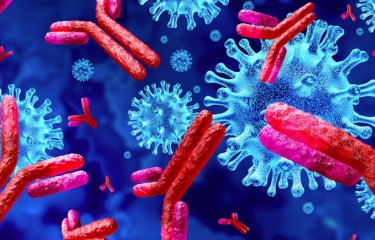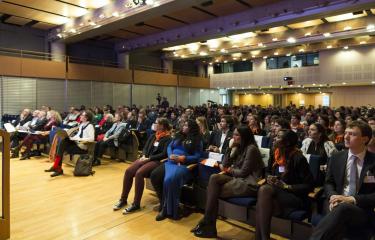The Institut Pasteur International Network, with the support of the International Department of the Institut Pasteur (Paris) and in association with institutional funders, has mobilised to help certain member institutes in Africa and Asia to carry out their public health missions in the context of the management of the COVID-19 pandemic. The objective of this aid was to provide them with financial and logistical support to strengthen their surveillance, diagnosis and response systems in the face of the virus.
The occurrence of the COVID-19 pandemic at the beginning of January 2020 shook the world and required the implementation of rapid and massive national responses, in terms of surveillance, research and protection of populations.
While most countries were able to mobilize their resources to do so, some lower-income countries found themselves facing logistical, human and financial challenges. In the face of a virus that affects all of humanity, a global response is needed and no country should be left to fight it alone. This pandemic highlighted the principle of global health and the need to strengthen international collaboration to help those most in need.
The mobilisation of the Institut Pasteur International Network
Faithful to its Pasteurian values and its missions of general interest, the Institut Pasteur International Network (or IPIN) with the support of the International Department of The Institut Pasteur (Paris) has naturally mobilised with their respective national authorities to fight the COVID-19 epidemic.
The IPIN is a unique model of cooperation in health, associating 32 institutes on the five continents, united by the same values, in particular solidarity and support (they are signatories of a charter of Pasteurian values), and sharing the same missions of research, training, public health and the promotion of scientific research, to which innovation and technology transfer are added.
From the very beginning of the pandemic, and then in a rapidly increasing way, the IPIN has strongly mobilised all its expertise and resources to fight against this emerging virus and its consequences, notably by supporting institutes located in low-income countries. Indeed, all the member institutes of the Network have been designated by their health authorities as reference laboratories for the diagnosis of COVID-19, thus finding themselves in the front line of the response to the COVID-19 epidemic.
Support for the activity and missions of the reference laboratories, coordinated by the Institut Pasteur in Paris
Per their missions, the institutes were thus propelled to the heart of the fight against COVID-19, by providing a very large volume of diagnostic tests every day. The granting of this mandate has unfortunately not always been accompanied by a sufficient operating budget to enable them to accomplish this mission. At the same time, the medical analysis laboratories, vaccination centres and other service activities of the institutes have been greatly slowed down due to a lack of sufficient staff or user attendance. Thus, the sustainability of these institutions, despite being major public health actors in their countries, is considerably weakened.
Thanks to the financial support of the French Development Agency (AFD) and the European Commission (DG-DEVCO), historical funders of the Institut Pasteur (Paris), an exceptional budget has made it possible to provide emergency support to some of the institutes in the network via various initiatives set up alongside existing projects such as ECOMORE II and MediLabSecure.
Coordinated by the International Department of The Institut Pasteur, these initiatives were able to help many countries, in particular:
- in Sub-Saharan Africa (Senegal, Niger, Madagascar, Guinea and the Central African Republic) via the project "Support to several Pasteur Institutes in Sub-Saharan Africa";
- in South-East Asia, the countries of the ECOMORE II programme (Myanmar, Cambodia, Laos, the Philippines and Vietnam);
- as well as certain countries of the MediLabSecure programme.
Through these initiatives, many actions have been carried out, aiming to:
- ensure the continuity of the activities of the reference laboratories by supplying reagents and consumables in sufficient quantities to test the local population but also laboratory equipment and personal protective equipment for the personnel that comply with safety standards;
- support the implementation and development of laboratory diagnostics;
- strengthening the human resources of front-line laboratories;
- promote the training of laboratory staff and the transfer of skills.
A mobilisation of the International Network and a commitment of the Institut Pasteur (Paris) beyond research and science
To cope with the global shortage of protective equipment and consumables/reagents related to the SARS-CoV-2 diagnosis, the Institut Pasteur International Network has set up a pooled procedure to ensure grouped orders for the benefit of the most fragile countries. In practice, a logistics platform has been set up to ensure a proactive watch on the needs not covered locally by the institutes as well as support throughout the supply chain: identification and certification of equipment grouped orders and routing.
To date, this logistical support, financed by the support of institutional funders and the Institut Pasteur's funds (Paris), has made it possible to transport 203 m3 of equipment to 14 countries in 46 shipments.
In parallel with this mobilisation of support, a multidisciplinary study project of the pandemic in Africa called REPAIR (Recherche Pasteurienne Internationale en Réponse au Coronavirus en Afrique) has been set up. This action, coordinated by the IPIN and supported by the Ministry of Europe and Foreign Affairs (MEAE) brings together a consortium of 10 African Pasteur Institutes (Tunisia, Algeria, Morocco, Senegal, Côte d'Ivoire, Guinea, Niger, Central African Republic, Cameroon, Madagascar). It is organised into 5 working packages focused on African situation: A multicentric evaluation of COVID-19 diagnostic test performance, study of the molecular epidemiology of the virus, sero-epidemiology of SARS-Cov 2, mathematical modelling of diffusion of Covid-19 and investigation of the social response to the testing of COVID-19. The mobilization of all African Pasteur Institutes on this project gives hope, in the diversity of the populations they serve and of the ecosystemic and socio-economic contexts in which they evolve, for the elaboration of a contrasted image of the pandemic after its passage on the continent.
This very rapid mobilisation of the institutes not only allowed access to diagnostic tests (PCR) but also encouraged the sharing of viral sequences, in particular thanks to the Hong Kong University Pasteur, which quickly made primers available to institutes requesting them.
"The responsiveness of major institutional funders such as the French Development Agency, the MEAE and the European Union was exceptional and equal to the challenges of this potentially devastating COVID-19 epidemic. Associated with the time lag in the arrival of the epidemic on the African continent, these funds have certainly helped to limit the disaster announced by most experts. Public generosity and the involvement of donors have once again been essential in helping The Institut Pasteur carry out its missions." says Professor Pierre-Marie Girard, Director of the Department of International Affairs of the Institut Pasteur.
This unprecedented epidemic shows the extent to which humanist values, shared by all the members of the Network who have signed a charter of Pasteurian values, have been an indispensable glue for dealing with a historic health crisis. These values are a real catalyst for the scientific skills of the Institut Pasteur International Network, enabling it to respond effectively on a global scale to the emergence of new diseases.
Download presentation leaflet about COVID-19 projects Appui à plusieurs Instituts Pasteur en Afrique subsaharienne (in French only) , ECOMORE II, MedilabSecure
This study is part of the priority scientific area Emerging infectious diseases of the Institut Pasteur's strategic plan for 2019-2023.





